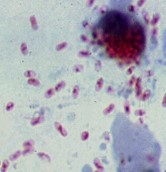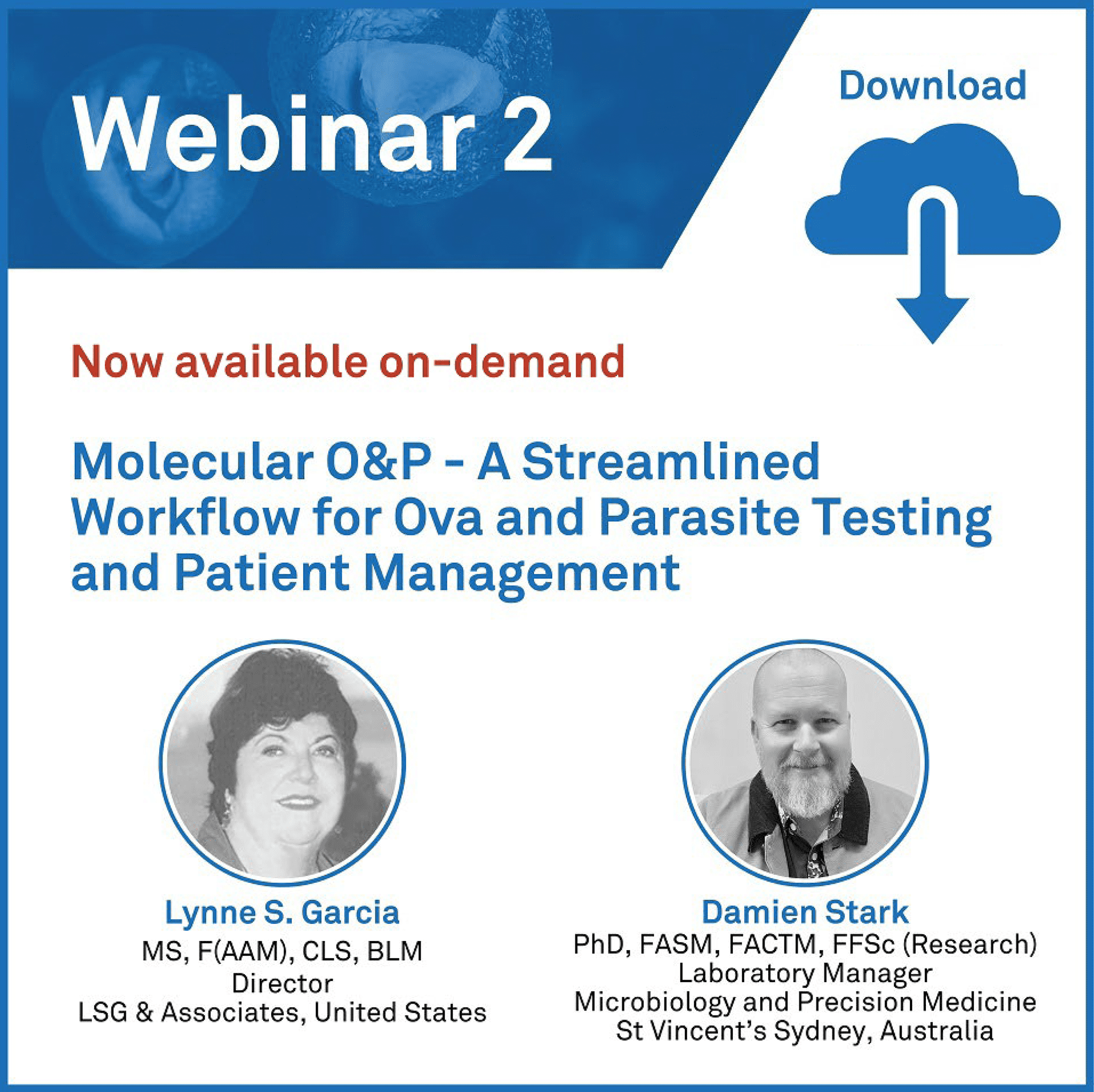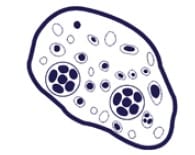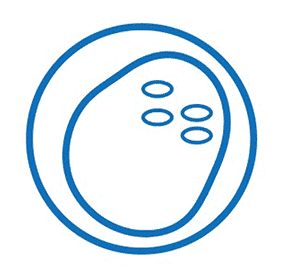Microsporidia laboratory diagnosis
Detecting Enterocytozoon bieneusi and Encephalitozoon intestinalis poses several challenges due to their unique biological characteristics and the limitations of current diagnostic methods. Due to the invasive nature of this disease, urine samples are also recommended when testing for microsporidia.
Diagnostic challenges include the requirement for labour-intensive processes that lack sensitivity and specificity, leading to false negative results. Challenges include:
- Presentation of non-specific and overlapping symptoms that can be caused by a wide range of gastrointestinal pathogens.
- Very small in size, with staining appearing to look like bacteria in a Gram stain, or artifacts. Detecting using standard microscopy without specialised staining is very difficult
- Requirement of specialised staining techniques (modified trichrome recommended) but very labor-intensive as these organisms are difficult to lyse and stain
- Detection by fluorescent stain (Calcofluor) is not specific

Microscopic examination of microsporidia
Molecular methods for detecting microsporidia
Genetic Signatures' EasyScreen™ Gastrointestinal Parasite Detection Kit and automated GS1 workflow addresses the many challenges of microsporidia detection, screening for both Enterocytozoon bieneusi and Encephalitozoon intestinalis in a single test, with 6 other clinically significant GI parasites.
This is the only FDA 510(k) cleared gastrointestinal parasite panel detecting microsporida.
The unique sample processing kit and 3base™ technology successfully accesses the nucleotide sequences of microsporidia to support efficient multiplex real-time PCR detection for infection.
Genetic Signatures simple, automated workflow eliminates the need for labor and time-intensive staining processes. The GI parasite panel is a highly sensitive and specific method compared to traditional diagnostic tests.
Listen to Dr. Damien Stark in the webinar series on the Advances of Gastrointestional Parasite Testing to hear his success in using 3base™ technology and Genetic Signatures workflow to detect microsporida.
Syndromic testing for 8 gastrointestinal parasites in a single test
Up to 60 patients screened in a single, automated workflow...with same day reporting!









